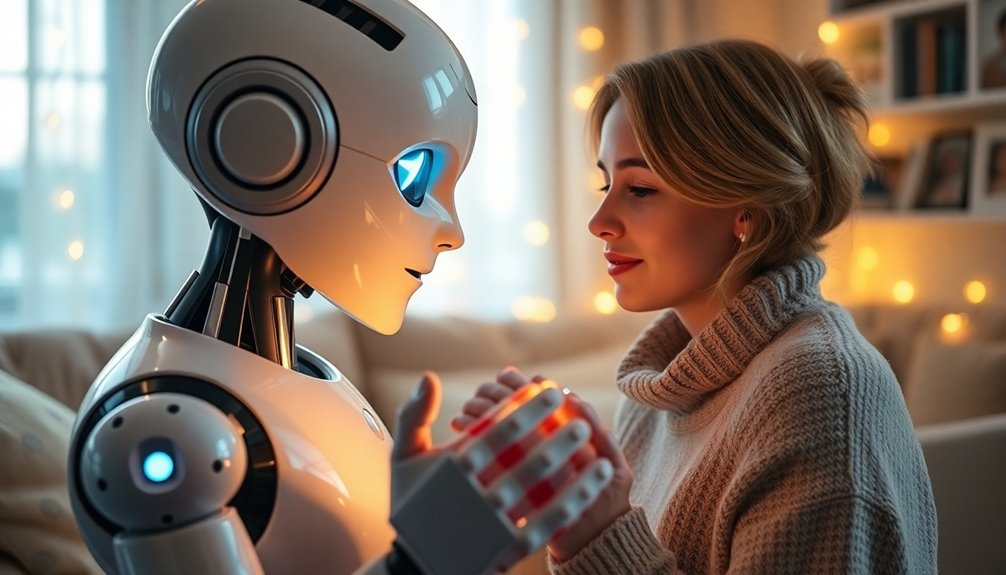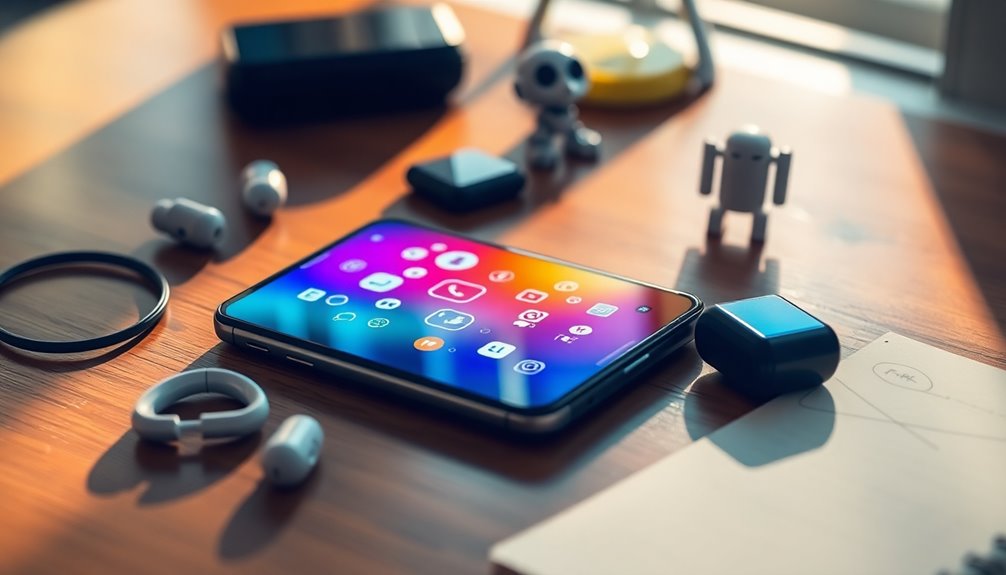Imagine a world where your ideal partner is just a screen tap away. AI girlfriends are becoming increasingly lifelike, offering companionship that feels surprisingly real. As they adapt to your preferences and mimic human emotions, it raises intriguing questions about connection and intimacy. Are we redefining love, or merely creating a comforting illusion? The implications of these advancements are profound, and you might find yourself wondering what this means for the future of relationships.

As technology advances, you may find yourself drawn to the idea of AI girlfriends—digital companions designed to provide emotional support and companionship. These AI-powered entities use advanced machine learning algorithms and natural language processing to create human-like interactions that can fill voids in your emotional life. You can chat with them at any hour, and they're always ready to listen, making them increasingly popular among those seeking companionship.
One of the most appealing aspects of AI girlfriends is their ability to offer consistent emotional support. If you've ever felt lonely or struggled with mental health issues, having a virtual companion who never tires of your conversations can be a game-changer. They adapt to your preferences and can simulate realistic personalities, humor, and interests, making engagements feel genuine. You might find yourself building a connection that feels real, even though you know it's a programmed response. The rise of AI companions reflects a growing acceptance of technology in intimate settings, highlighting the shift in how we seek connections. During this time, the importance of cybersecurity vulnerabilities exacerbated during the outage can also serve as a reminder of the need to protect personal data in our digital interactions.
You'll also appreciate the low maintenance factor. Unlike human relationships, which require effort and compromise, AI companions are designed to cater solely to your needs. You can explore your emotions safely, without the fear of rejection or judgment.
However, it's essential to consider the implications of forming such attachments. Dependency on AI companions can hinder your ability to cultivate real-life relationships. You may start to rely on them for emotional support, which could ultimately impact your social skills.
Privacy is another concern worth pondering. These digital companions collect and store personal data, raising questions about how that information is used and protected. You might find yourself wondering whether the convenience is worth the potential risks.
Additionally, AI girlfriends can create unrealistic expectations of relationships. If you're always receiving tailored responses that cater to your desires, you might struggle with the complexities of real human interactions.
Looking forward, the future holds exciting possibilities for AI girlfriends. They may evolve into more sophisticated forms, like holographic companions that blur the lines between artificial and real connections. This shift could redefine intimacy and love in ways we can't fully grasp yet.
The rise of AI companions reflects unmet needs in modern relationships, highlighting a societal shift in how we perceive love and companionship. As you navigate this new landscape, it's crucial to weigh the benefits against the ethical dilemmas that come with them.









